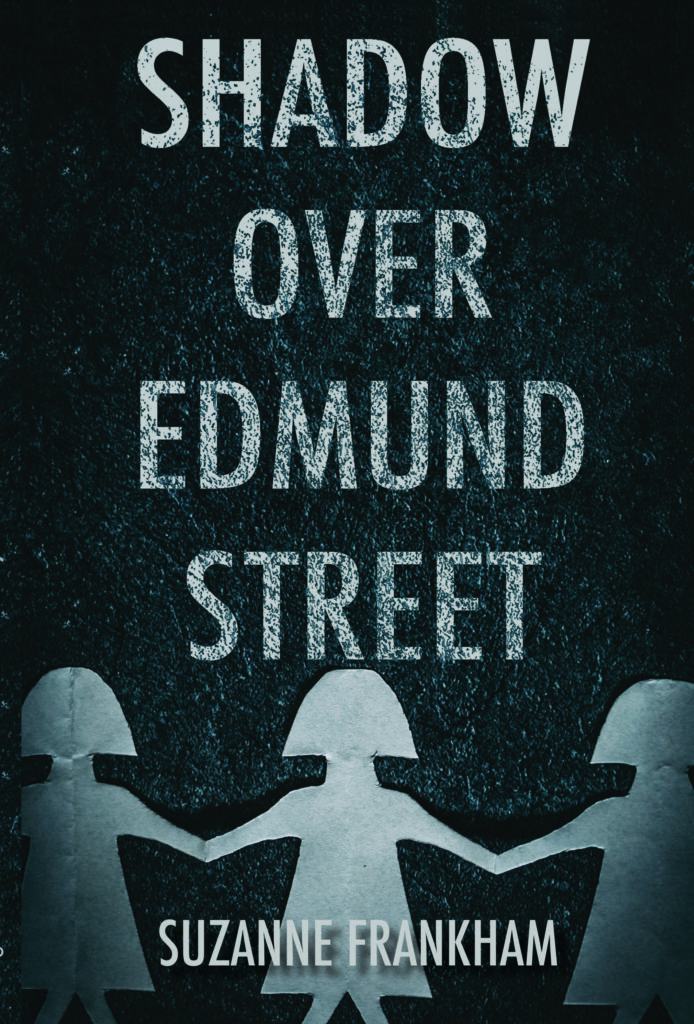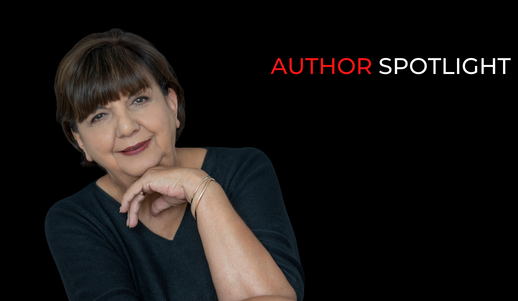Suzanne Frankham, author of Shadow Over Edmund Street (Journeys to Words Publishing), told Maggie Baron that the collision of the past and present pushes her story into the thriller genre and towards its ultimate climax.
Hello Suzanne, I’m here to shine a light on Shadow Over Edmund Street, your debut novel set in Ponsonby, Auckland, which tells the story of the murder of Edwina Briggs.
Edwina is an old-style battler who lived a simple life. Three months after her death the police have no solid leads, until a casual comment from one of her friends sends them trawling through Edwina’s childhood, when Ponsonby was a much tougher suburb.
Let’s delve into the genesis of this story, without giving anything away.
The story is set in Auckland, where you grew up. What was attractive for you in using this setting and how did you use your lived experience to add depth and interest to what could otherwise be a suburb in any big city?
Ponsonby is a Victorian-era neighbourhood, close to the city centre, and the harbour. The inner-city revival of the seventies turned it from a downtrodden area into an uber-chic suburb. I used the setting to drive the characters. Edwina lived in an old decaying family home, her friend Rose, had been born in Ponsonby but travelled the world before returning. Other characters had either escaped or ridden the transition of the suburb from decay to respectability. Having a science background, I always try to add some science into my stories, and Rose as a biologist gets to study the inner harbour foreshore close to Ponsonby.
Your book switches across several timelines as the clues to the murderer are uncovered. What challenges did this pose for you in crafting the narrative and what were the most challenging aspects in ensuring you delivered a product with robust continuity?
There are two investigations in the book, the official police investigation and the investigation by Edwina’s friends, using neighbourhood gossip and the church network. The clue to Edwina’s death lies deeply buried in her past, and because her friends are clumsy, they tip off the murderer, so we see quite a bit of them as well. The story is set in the present, although as Edwina’s backstory seeps out, we catch glimpses of the past. The collision of the past and present pushes the story into the thriller genre and towards the ultimate climax. To achieve this, I used 3 POVs. Clarity in anchoring the reader in the right time period is critical.
Appearance plays an important part of your story. Without giving anything away, are you able to talk a little about that?

In every detective story, appearances are deceptive. People are not what they seem. In Ponsonby in the sixties, poverty had carved a deep scar and some people would do anything to escape (in a book anyway)!
You have had success in writing competitions—two wins in Sisters in Crime Australia’s Scarlet Stiletto Awards (2014 and 2017) and a win in the S.D. Harvey Short Crime Story Award (2019). Shadow Over Edmund Street was shortlisted in Sisters in Crime’s Davitt Awards (2022), Ned Kelly Awards (2022), and New Zealand Ngaio Marsh Awards (2022). How did this influence your development as a writer?
Short stories hone your skill as an editor and teach a writer to keep the reader centre-square. Capturing and holding the reader is vital. I used those same principles in the long form. Being shortlisted for the three awards was a huge surprise and fun, although the last hurrah of the 2022 Covid wave meant interaction with other nominees was limited. The takeout from the nominations is more confidence to finish the sequel.
Coming back to Edwina, you shape her as a woman with a routine life. She works in a simple job, attends church, and has a small friendship group. What attracted you to a character like Edwina and how did this assist you in crafting your story?
When Edwina was born, the world was shedding the lingering constraints imposed by the war and the church. For some, the church still held a lot of sway, and neighbourhood connections were paramount, while, at the same time, a new generation was breaking out and forging their own pathway. I wanted the book to incorporate these ideas.
In your bio on journeystowordspublishing.com, you talk about other writing projects you have underway. Where are you up to with book two and when might your readers get to read that?
Jen Hutchison, the driving force behind JTW died unexpectedly last year, at much the same time as Shadow Over Edmund Street was being shortlisted in various competitions. Behind the scenes, everyone was traumatized. Jen had enormous drive and, without her, the decision was taken to close the publishing house.
My new publisher is Bateman Books, New Zealand.
The sequel to Shadow Over Edmund Street—the working title is Thieves Bay—is at the first major edit stage. However, I edit ferociously, and stopping is always difficult. Once that is completed, my next book, working title—Chasing Butterflies, (a nod to Alfred Russel Wallace who drives the narrative) remains mostly in my head.
More info here.
